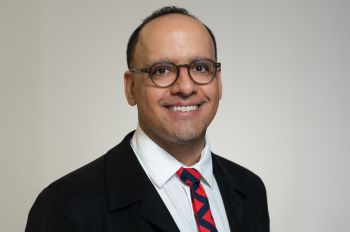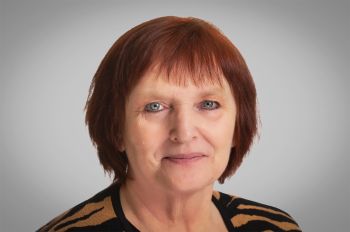Chicago-Kent Earns Top Awards in NYC Bar Association’s National Moot Court Competition

A team of two Chicago-Kent College of Law students earned top awards in one of the nation’s most prestigious moot court contests: the 2022 New York City Bar Association National Moot Court Competition.
Jacob Skolnik ’22 and Zelpha Williams ‘22 were awarded the competition's best petitioner brief award; Skolnik was ranked the 2nd-best oral advocate and Williams the 4th-best out of the 52 students who competed. The pair advanced through several rounds to reach the Feb. 3 final, before being bested by Texas Tech University School of Law.
“I was very proud. Obviously I wanted to win. So much of the law is controlled by a million factors you can’t control, but being able to exercise the factors you can control—you should be proud of that,” says Skolnik. “Ultimately it comes down to doing the best you can and accepting what happens. And it was a lot of fun.”
Adds Williams, “It was a really exciting way to end our moot court careers. Jacob and I both strived for the more difficult arguments, and we both enjoyed the challenge.”
In all, 26 teams competed in the national bout. The Chicago-Kent team beat the University of Montana’s Alexander Blewett III School of Law and the University of Kansas School of Law during two preliminary rounds; advanced against University of Tennessee College of Law in the octofinal; Georgia State College of Law in the quarterfinal, and against William & Mary Law School in the semifinal.
The competition’s arguments centered on a fictional United States Supreme Court case involving a transgender inmate who was attempting to get gender affirmation surgery to transition to a man.
The prison had a policy that denied such surgery, and the inmate sued, saying the blanket ban was a violation of their Eighth Amendment rights. The Eighth Amendment prohibits cruel and unusual punishment.
Additionally, the prisoner was represented pro bono by a private firm, but his attorney was hospitalized with an illness similar to COVID-19, which made him miss a filing deadline. The prisoner filed the case himself under the “prison mailbox rule,” which allows for filings to be dated when they’re placed in the prison mailbox, not when they’re received by a court.
The prison’s attorneys argued that because the prisoner was represented, the mailbox rule shouldn’t apply.
The teammates each focused on arguments that matched their style: Skolnik addressed the Eighth Amendment issue, where he thought he could get better leverage on judges’ heartstrings, while Williams tackled the hard, dry federal rule of appellate procedure and case law surrounding the prison mailbox issue.
“[Skolnik] is very engaging and dynamic, so it plays well for the constitutional issue, and my attention to detail plays well for the procedural issues, to find nitpicky arguments,” Williams said last month after the pair’s regional bout.
“I’m a very dramatic guy. Drama major,” Skolnik said at the time. “I toe the line between being theatrical [and not], but I think it works to my advantage.”
When arguing for the inmate in the final, Skolnik largely used the same arguments as in the regional bout: “[The prison] was hiding behind the ban without considering whether he needs the surgery. The plaintiff suffers from gender dysphoria; treatment of the condition is very individual. [The ban] doesn’t even provide an opportunity to sit at the table and discuss why it’s warranted.”
He pointed out that the plaintiff was on suicide watch, had lost weight and hair, and had told doctors he would kill himself if he didn’t get the surgery. His psychiatrist had backed his gender dysphoria diagnosis.
On the mailbox issue, Williams pointed out that the rule was created out of equity, and that the plaintiff shouldn’t be harmed when they’re unrepresented.
Still, after the finals, Williams noted that arguing for the plaintiff was an uphill battle precisely because the plaintiff technically had representation.
“The prison mailbox rule should only apply to unrepresented individuals. The 14th Circuit Court (which the fictitious case was appealing) acknowledged he was represented,” Williams says. “We effectively tried to leverage other avenues for relief he should have taken.”
Judges commented that Skolnik made good use of case law in his arguments, and Williams had a good mastery of the federal rule.
Skolnik grew up in Glencoe, Illinois, and received bachelor’s degrees in drama and economics from Kenyon College in Ohio. He has clerked for Cook County Circuit Court justice Pamela Meyerson, and is now clerking for Feinberg Sharma PC, a Chicago-based family law firm.
He has previously won the Fay Clayton Award for Outstanding Oral Advocate in the 2020 Ilana Diamond Rovner Competition, and won best oralist in the NYC Bar’s regional competition earlier this year.
Williams grew up in the Los Angeles suburb of Palos Verdes and received her bachelor’s degree in political science from Johns Hopkins University. She served as a judicial extern for Illinois Appellate Court Judge Mary Mikva, and currently clerks for Skarzynski Marick & Black LLP.



